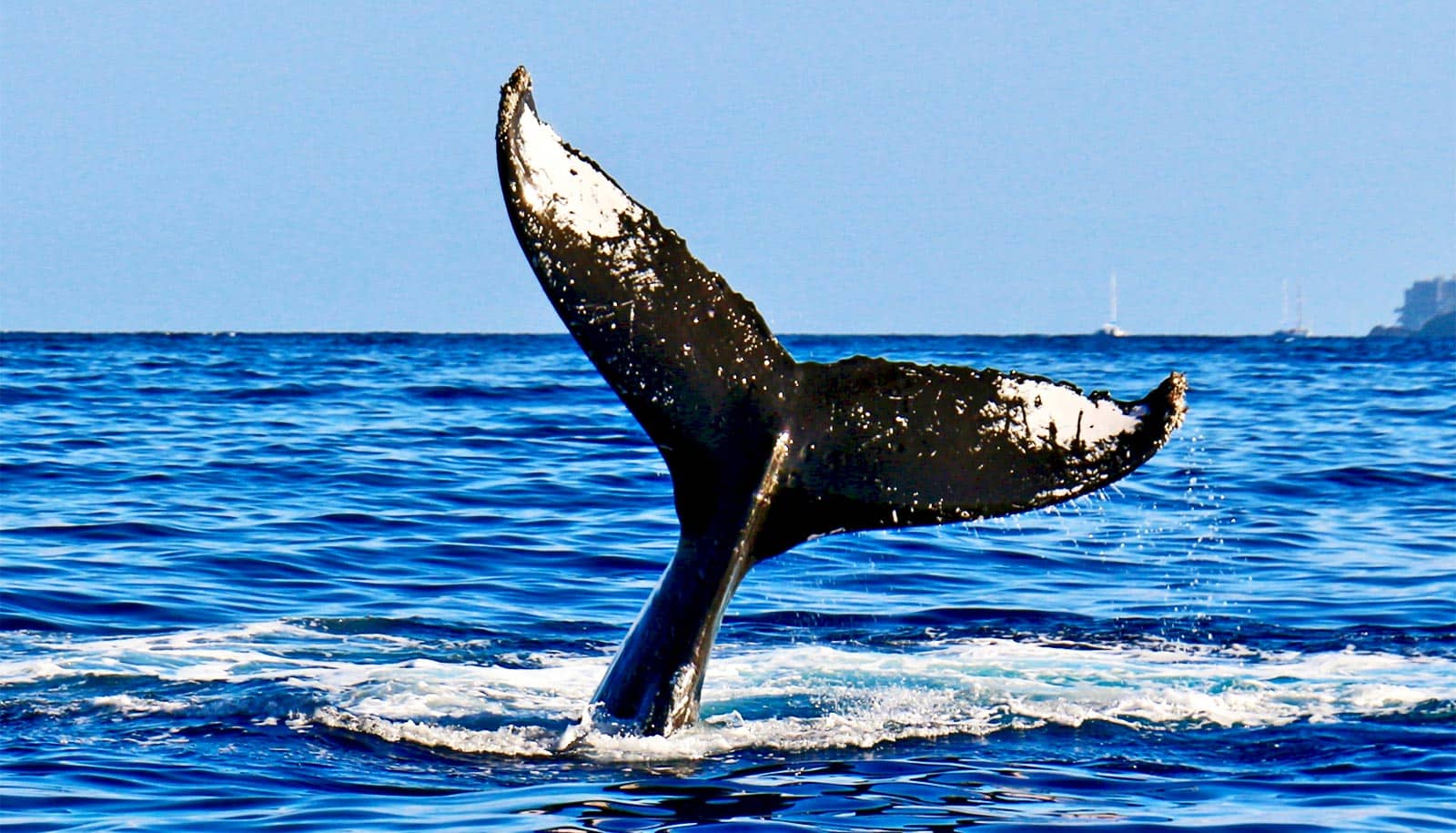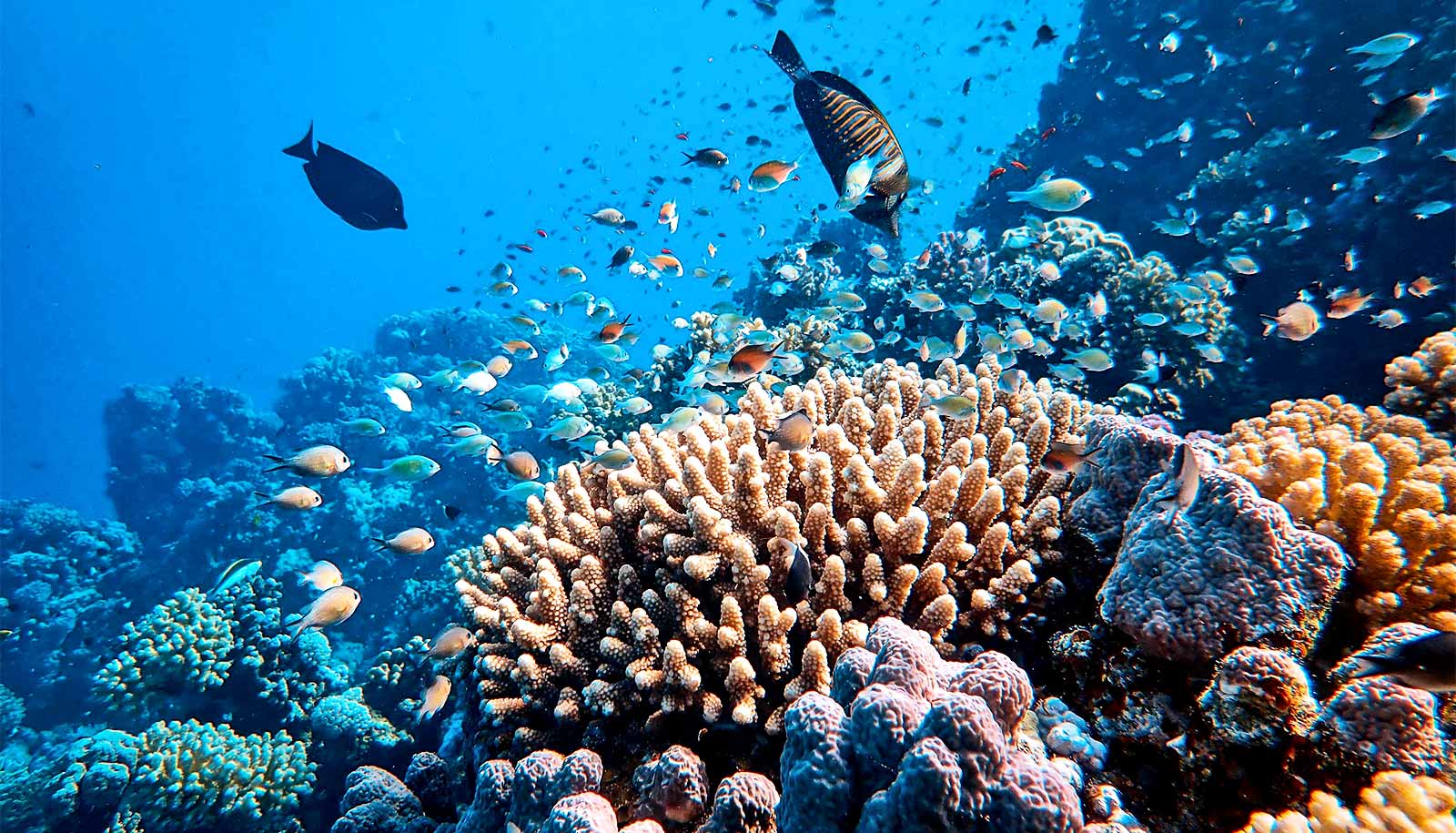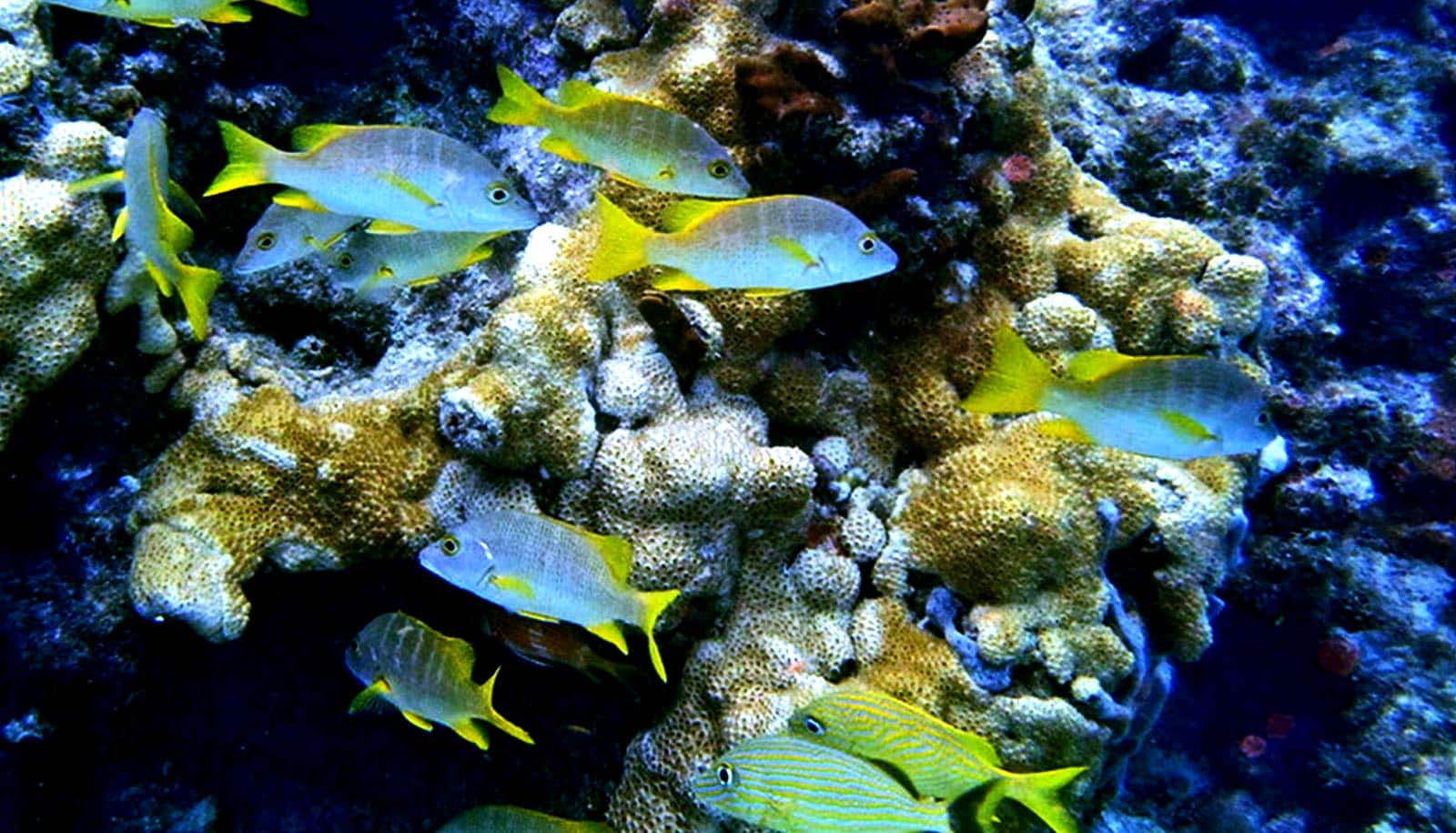
"This unprecedented effort, involving a major tour de force, has shown the overwhelming evidence for the prevalence of impacts from human-induced noise on marine animals, to the point that the urgency of taking action can no longer be ignored," says Michelle Havlik. (Credit: Andrew Bain/Unsplash )
Human noise wreaks havoc on all kinds of ocean animals
Human-created noise can disrupt the behavior, physiology, reproduction, and ecosystems of whales and other ocean life. It can even lead to death.
Human-created noise negatively affects marine animals and their ecosystems, researchers report.
This noise disrupts their behavior, physiology, reproduction, and, in extreme cases, causes mortality.
The researchers call for human-induced noise to be considered a prevalent stressor at the global scale and for policy to be developed to mitigate its effects.
The researchers set out to understand how human-made noise affects wildlife, from invertebrates to whales. They report that the soundtrack of the healthy ocean, plagued with human-created noise , no longer reflects the acoustic environment of today’s ocean.
The research, published in Science , is eye-opening to the global prevalence and intensity of the impacts of ocean noise. Since the Industrial Revolution, humans have made the planet, the oceans in particular, noisier through fishing, shipping, infrastructure development, and more, while also silencing the sounds from marine animals that dominated the pristine ocean.

“The landscape of sound—or soundscape—is such a powerful indicator of the health of an environment,” says coauthor Ben Halpern, director of the National Center for Ecological Analysis and Synthesis at the University of California, Santa Barbara. “Like we have done in our cities on land, we have replaced the sounds of nature throughout the ocean with those of humans.”
Why the ocean soundscape matters
The deterioration of habitats, such as coral reefs, seagrass meadows, and kelp beds with overfishing, coastal development, climate change, and other human pressures, have further silenced the characteristic sound that guides the larvae of fish and other animals drifting at sea into finding and settling on their habitats. The call home is no longer audible for many ecosystems and regions.
The Anthropocene marine environment is polluted by human-made sound and should be restored along sonic dimensions, and along those more traditional chemical and climatic. Yet, current frameworks to improve ocean health ignore the need to mitigate noise as a pre-requisite for a healthy ocean.
“We all know that no one really wants to live right next to a freeway because of the constant noise. For animals in the ocean, it’s like having a mega-freeway in your backyard.”
Sound travels far, and quickly, underwater. And marine animals are sensitive to sound, which they use as a prominent sensorial signal guiding all aspects of their behavior and ecology.
“This makes the ocean soundscape one of the most important, and perhaps under-appreciated, aspects of the marine environment,” the authors write. They hope that the evidence presented in the paper will “prompt management actions… to reduce noise levels in the ocean, thereby allowing marine animals to re-establish their use of ocean sound.”
“We all know that no one really wants to live right next to a freeway because of the constant noise,” Halpern says. “For animals in the ocean, it’s like having a mega-freeway in your backyard.”
Urgent need for action
The team set out to document the impact of noise on marine animals and on marine ecosystems around the world. They assessed the evidence contained across more than 10,000 papers to consolidate compelling evidence that human-made noise impacts marine life from invertebrates to whales across multiple levels, from behavior to physiology.
“This unprecedented effort, involving a major tour de force, has shown the overwhelming evidence for the prevalence of impacts from human-induced noise on marine animals, to the point that the urgency of taking action can no longer be ignored,” says Michelle Havlik, a PhD student at King Abdullah University of Science and Technology (KAUST).
“The deep, dark ocean is conceived as a distant, remote ecosystem, even by marine scientists,” says lead author Carlos M. Duarte, professor at King Abdullah University of Science and Technology.
“However, as I was listening, years ago, to a hydrophone recording acquired off the US West Coast, I was surprised to hear the clear sound of rain falling on the surface as the dominant sound in the deep-sea ocean environment. I then realized how acoustically connected the ocean surface, where most human noise is generated, is to the deep sea; just 1,000 meters [3281 feet], less than 1 second apart!”
The takeaway of the review is that “mitigating the impacts of noise from human activities on marine life is key to achieving a healthier ocean.” The study identifies a number of actions that may come at a cost but are relatively easy to implement to improve the ocean soundscape and, in so doing, enable the recovery of marine life and the goal of sustainable use of the ocean.
For example, simple technological innovations are already reducing propeller noise from ships, and policy could accelerate their use in the shipping industry and spawn new innovations.
Deploying these mitigation actions is low-hanging fruit. Unlike other forms of human pollution such as emissions of chemical pollutants and greenhouse gases, the effects of noise pollution cease upon reducing the noise, so the benefits are immediate.
The study points to the quick response of marine animals to the human lockdown under COVID-19 as evidence for the potential rapid recovery from noise pollution.
Source: UC Santa Barbara
The post Human noise wreaks havoc on all kinds of ocean animals appeared first on Futurity .
Share this article:
This article uses material from the Futurity article, and is licenced under a CC BY-SA 4.0 International License. Images, videos and audio are available under their respective licenses.
Related Articles:
Trick chills coral for year-round preservation
Aug. 28, 2023 • futurityCoral reef soundscapes rebounded after Hurricane Irma
Feb. 25, 2021 • futurityLinks/images:
- https://www.futurity.org/noise-boat-traffic-dolphins-1590192/
- https://doi.org/10.1126/science.aba4658
- https://www.futurity.org/penguins-ocean-health-1572822/
- https://www.futurity.org/bowhead-whales-songs-1726882/
- https://www.futurity.org/ship-emissions-change-clouds-2329582/
- https://www.news.ucsb.edu/2021/020168/healthy-oceans-need-healthy-soundscapes
- https://www.futurity.org/noise-oceans-marine-life-2514802-2/
- https://www.futurity.org


